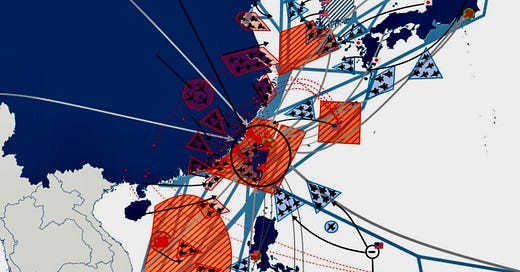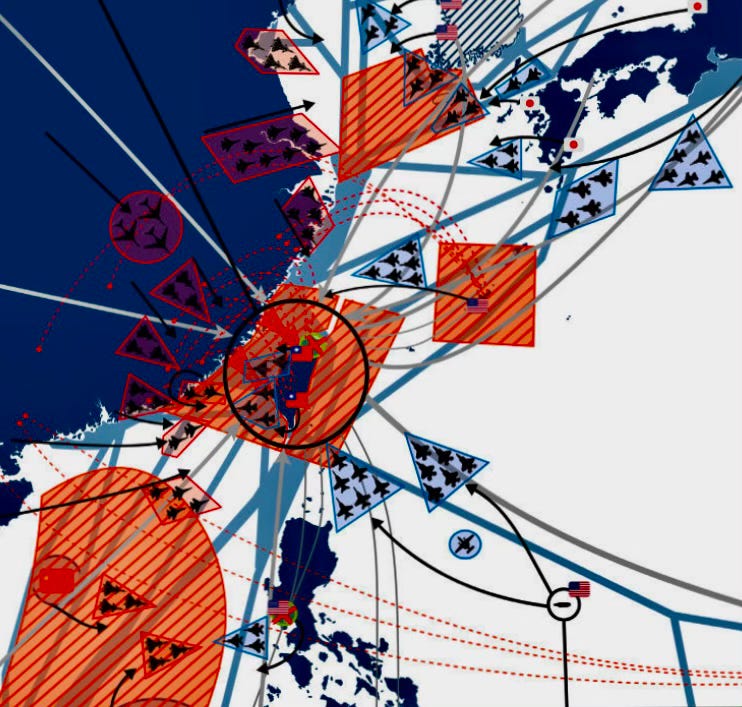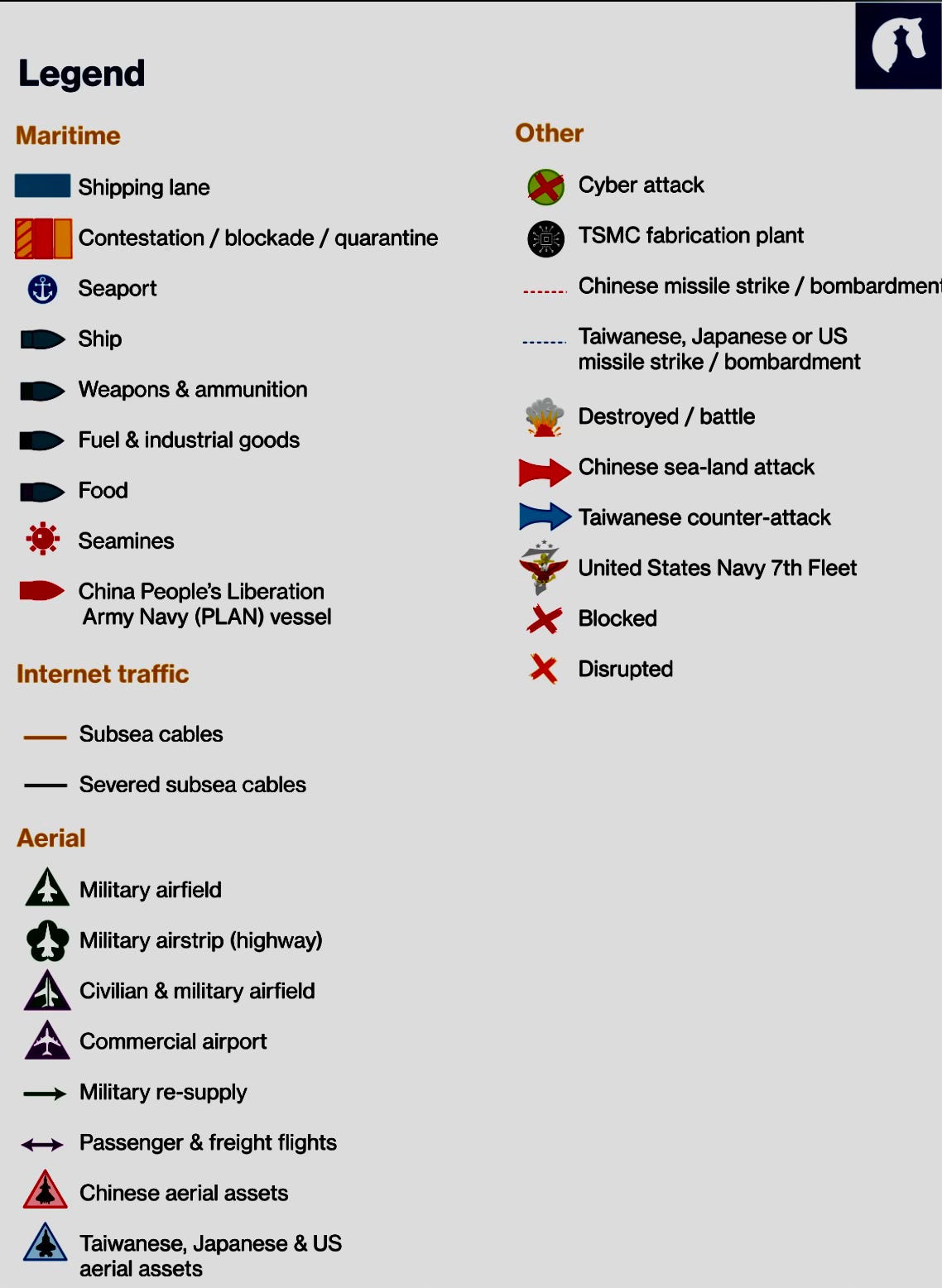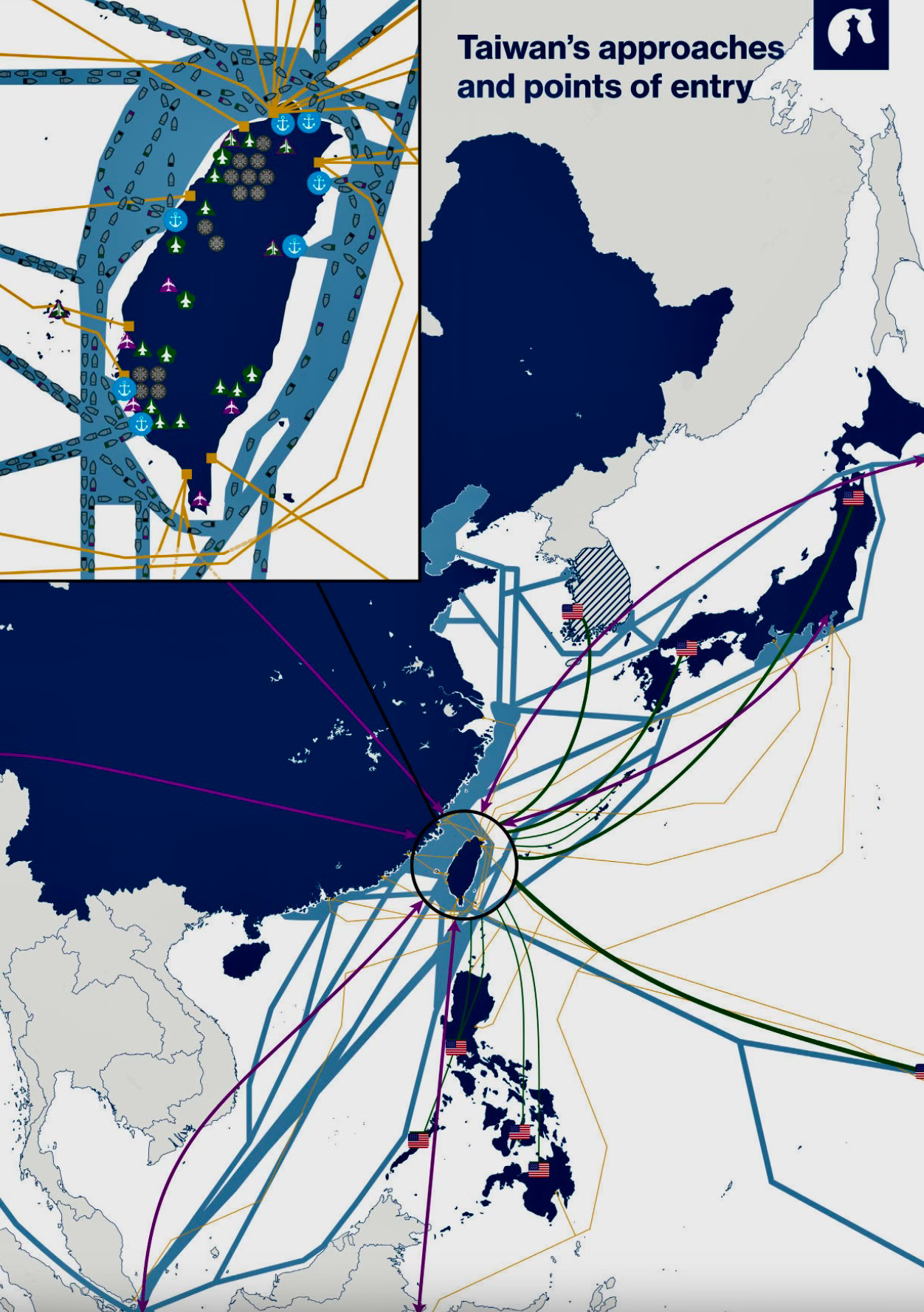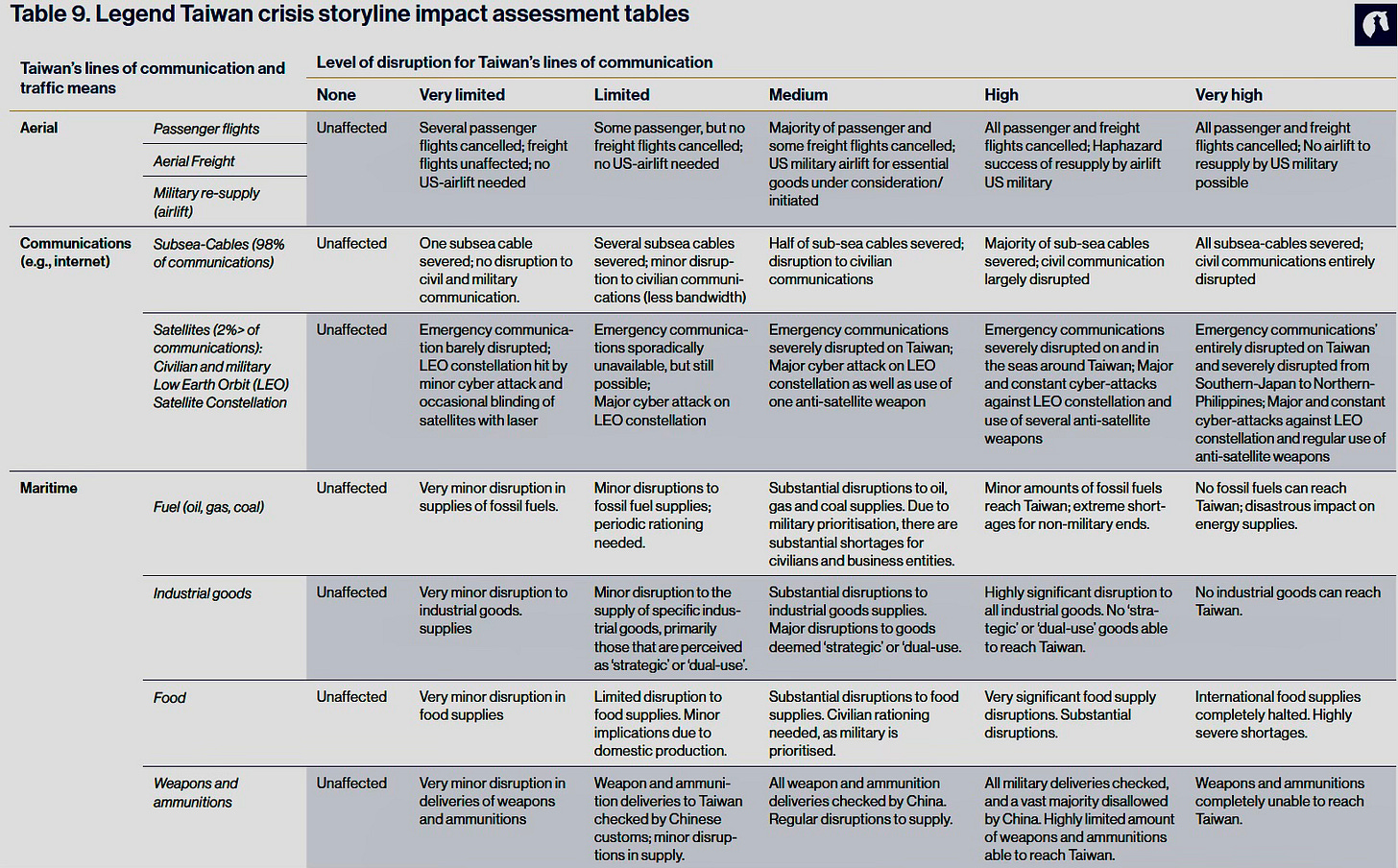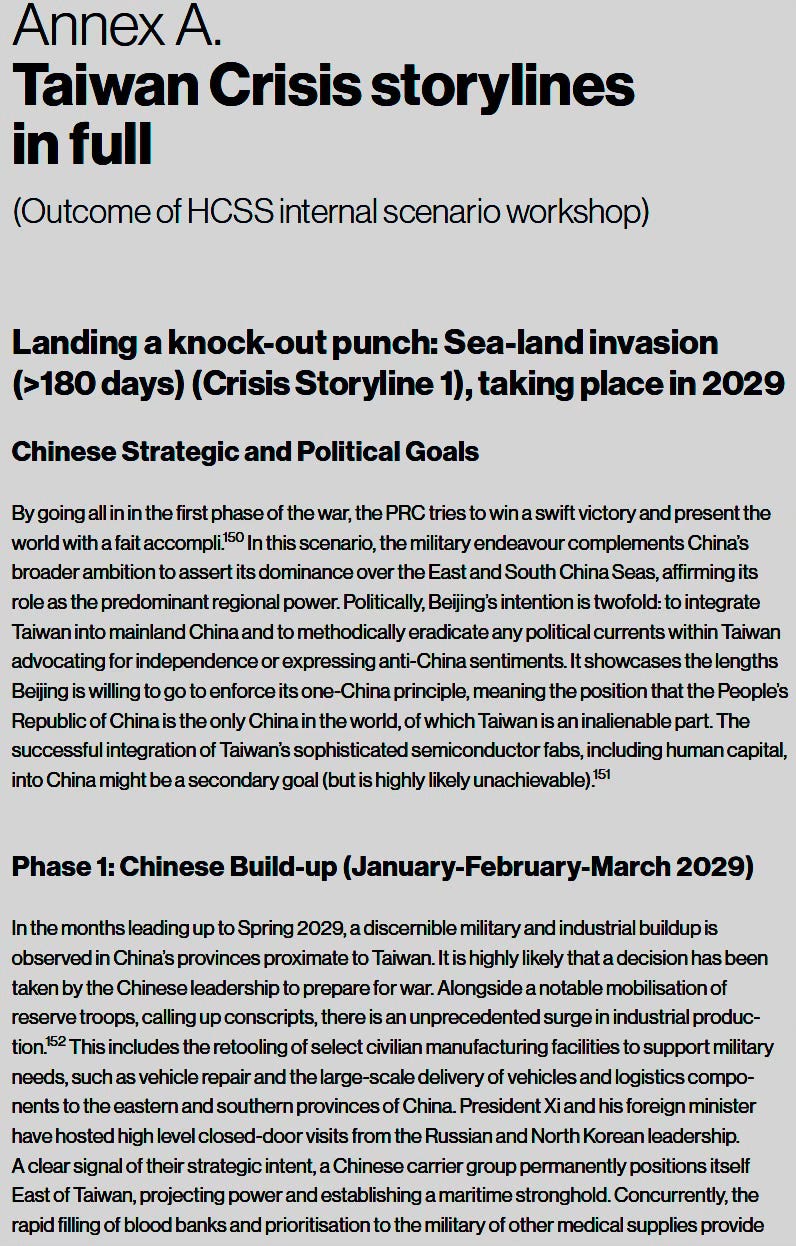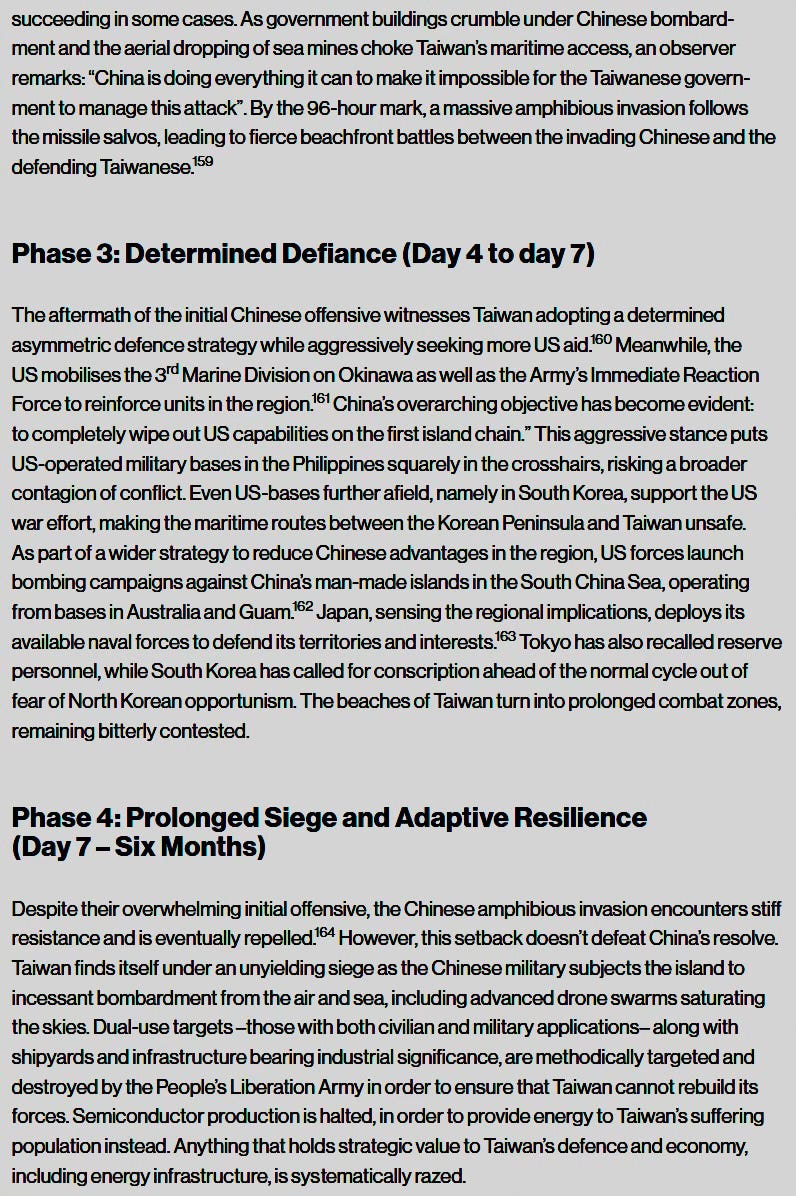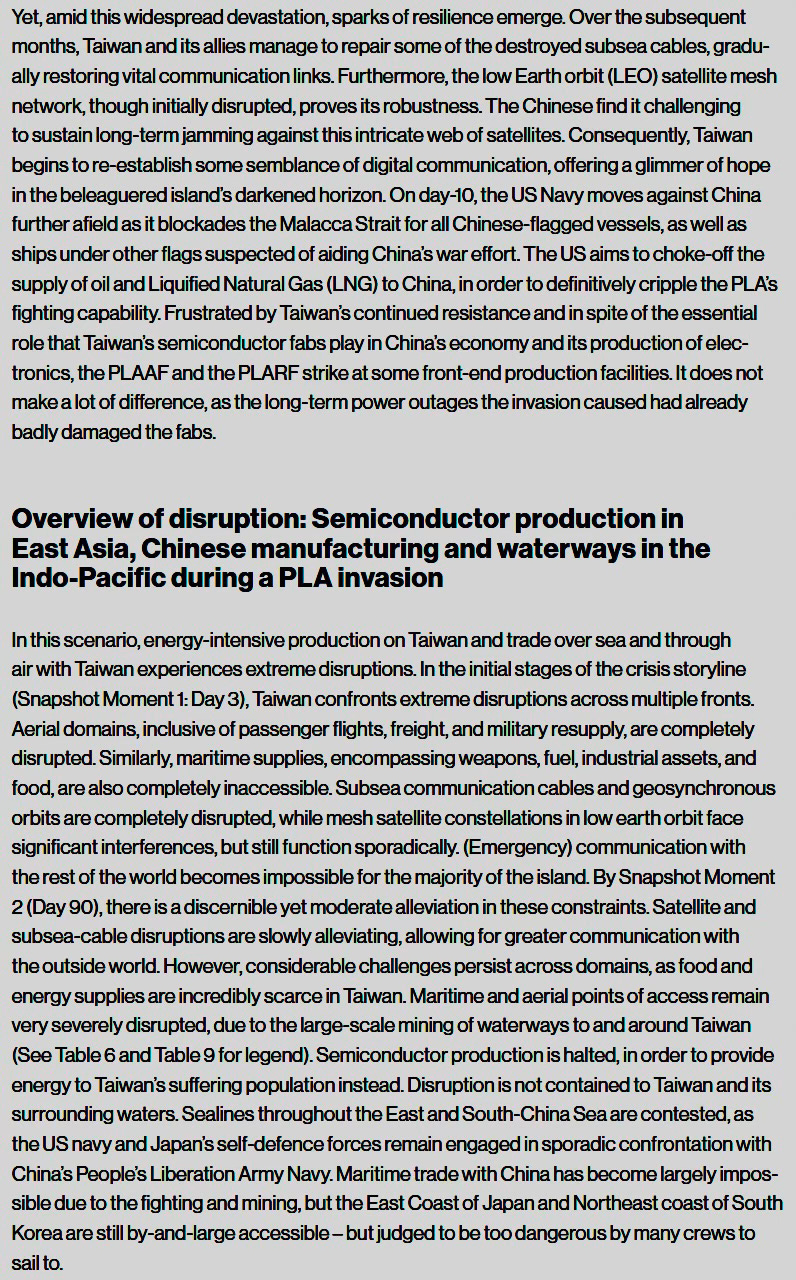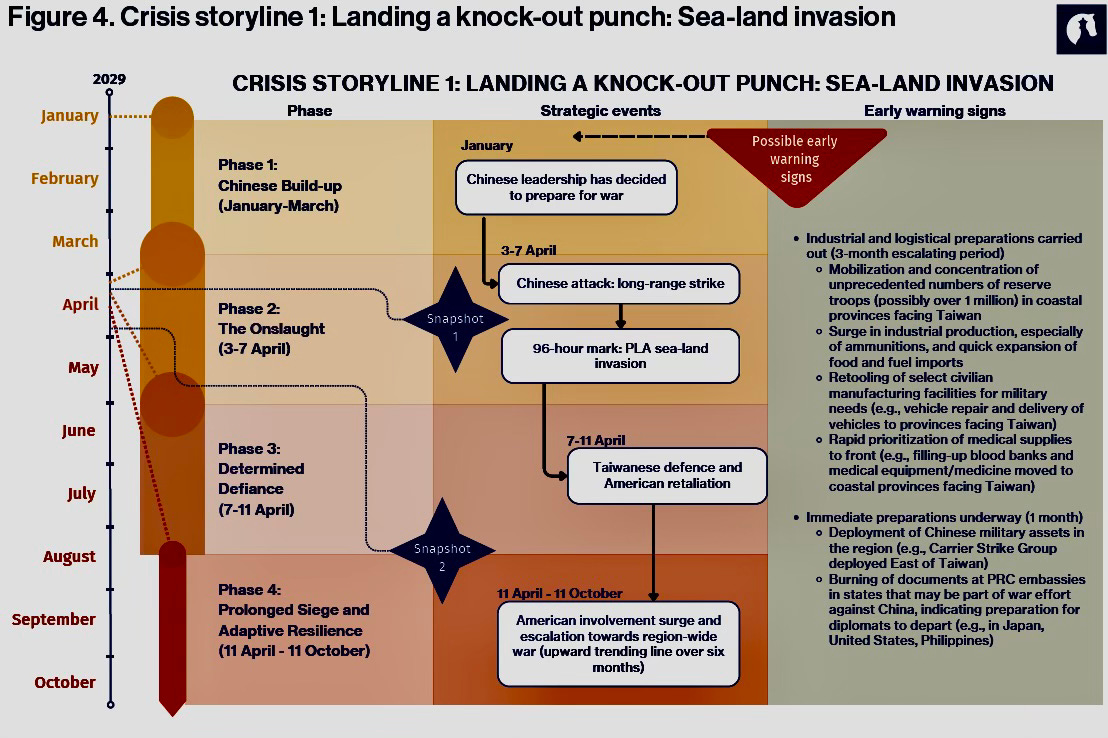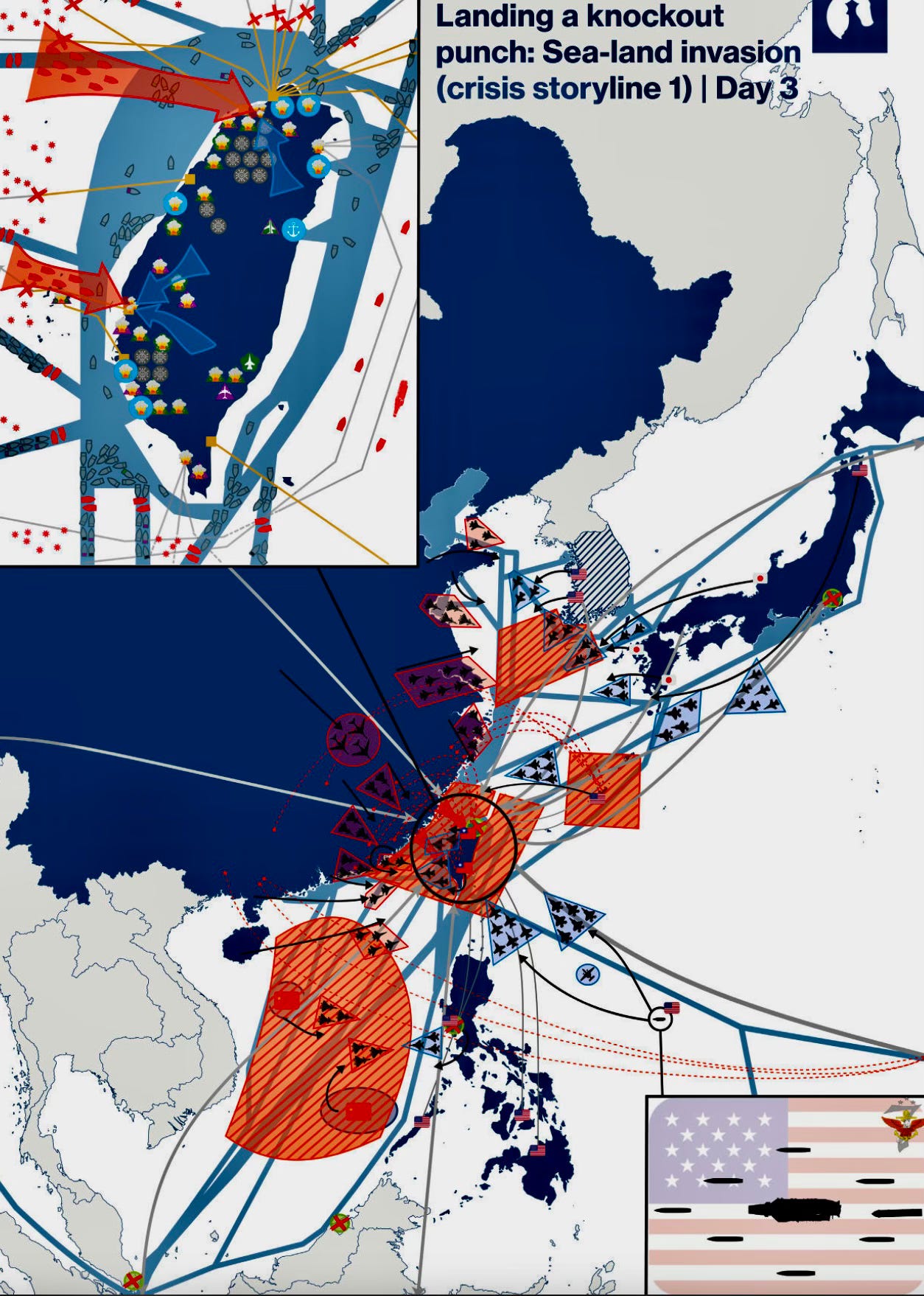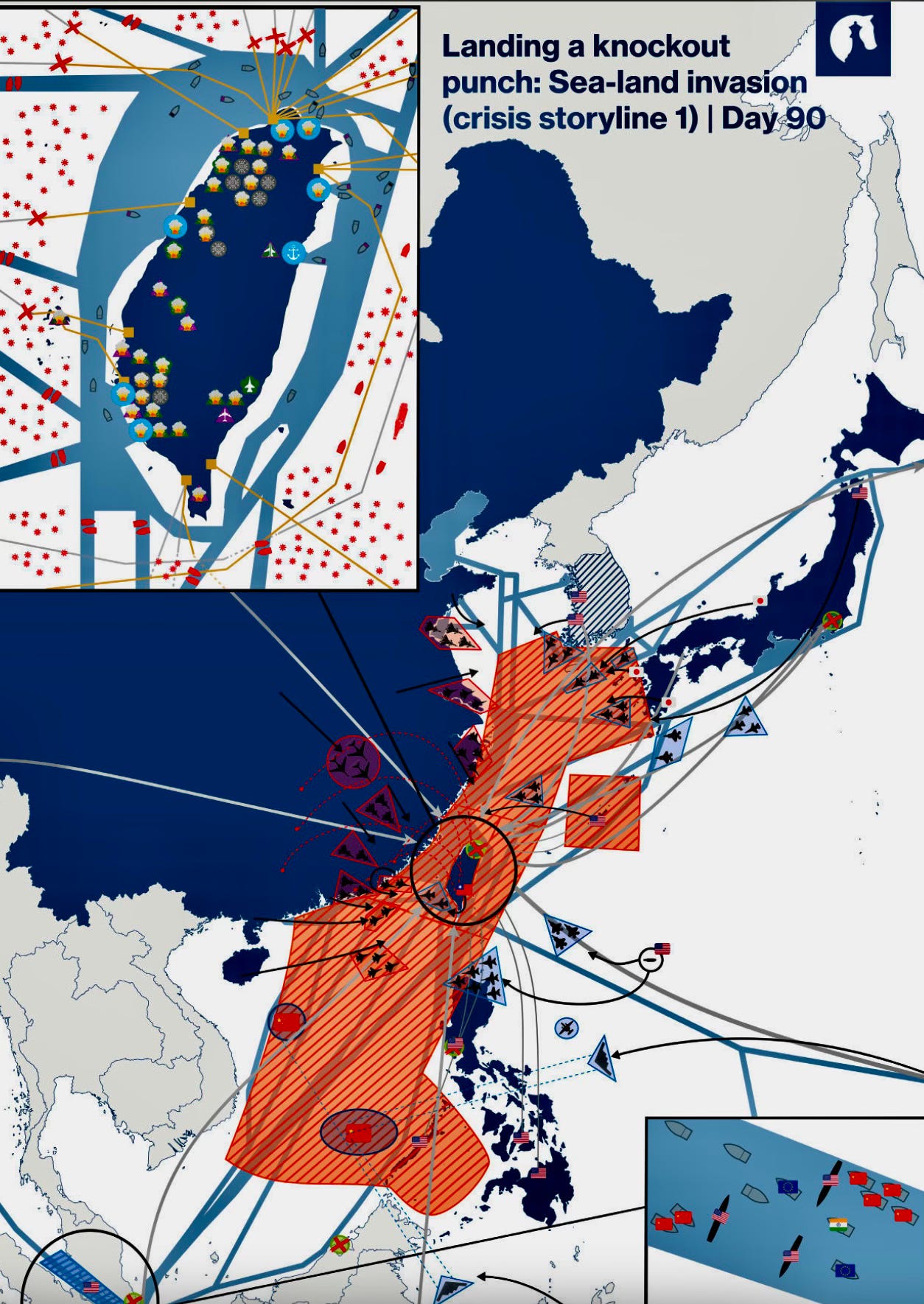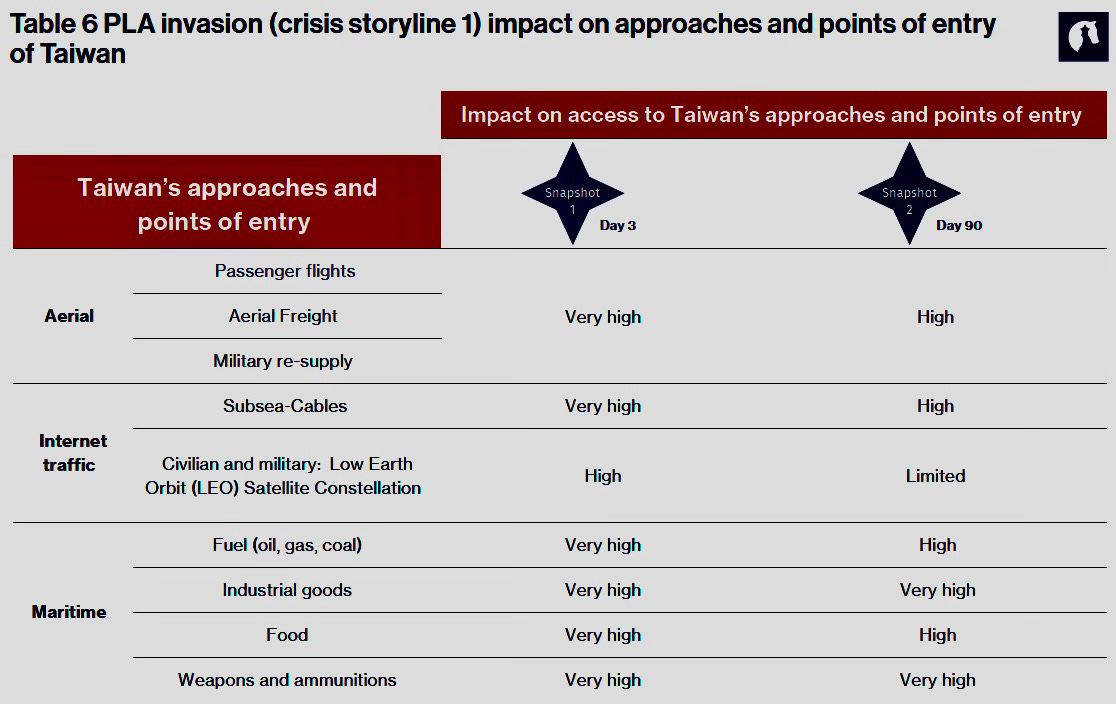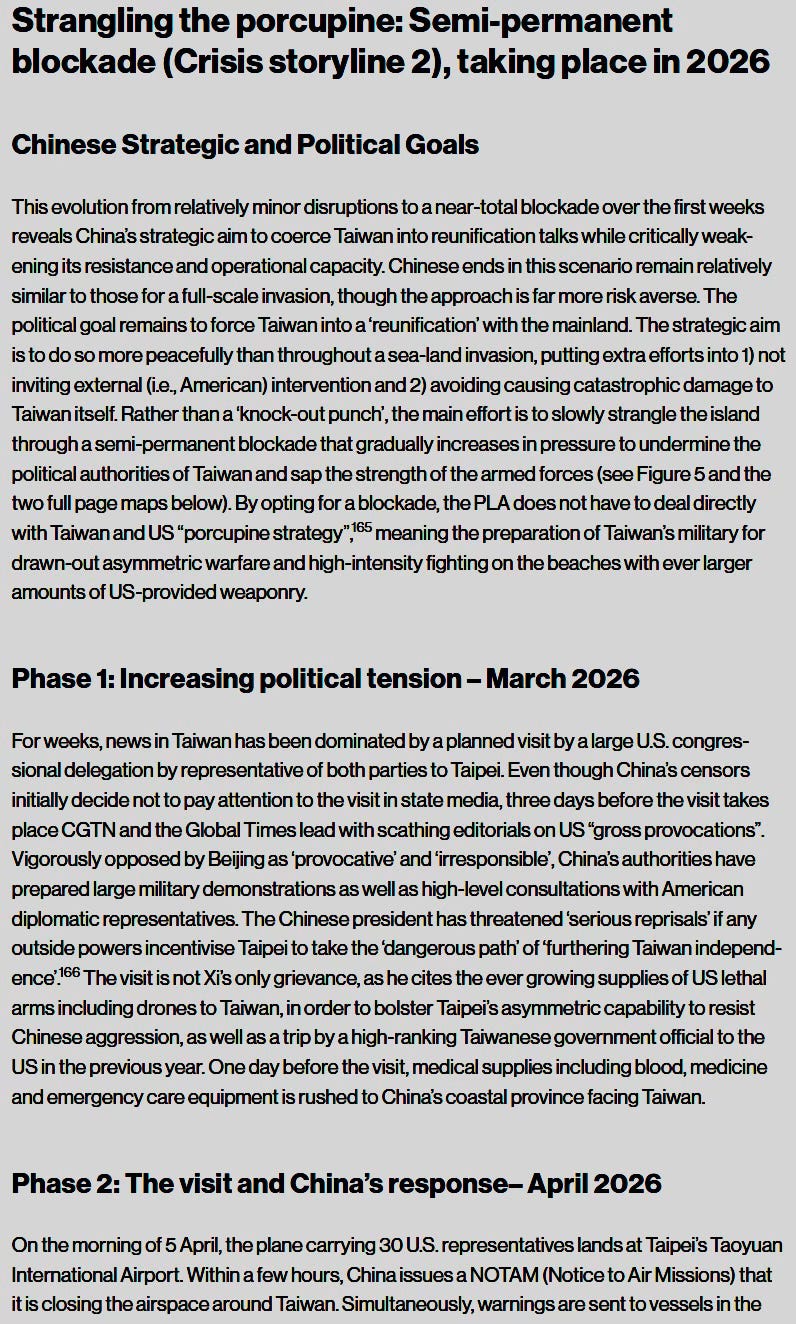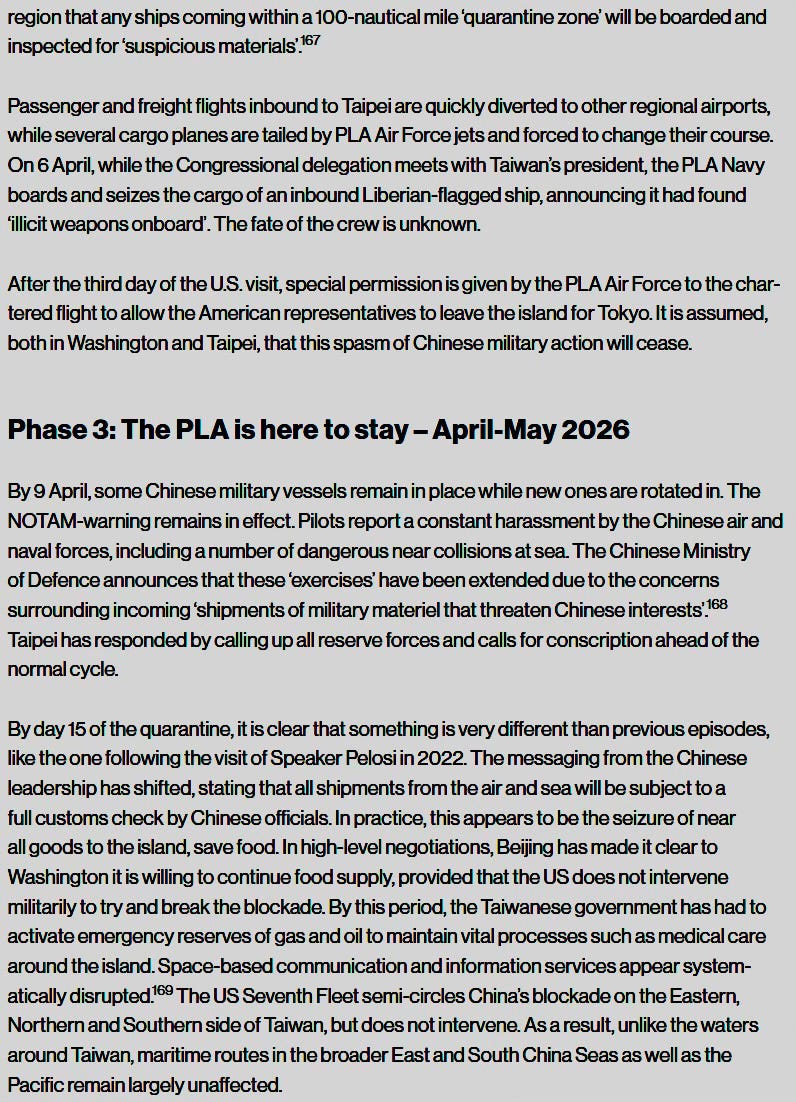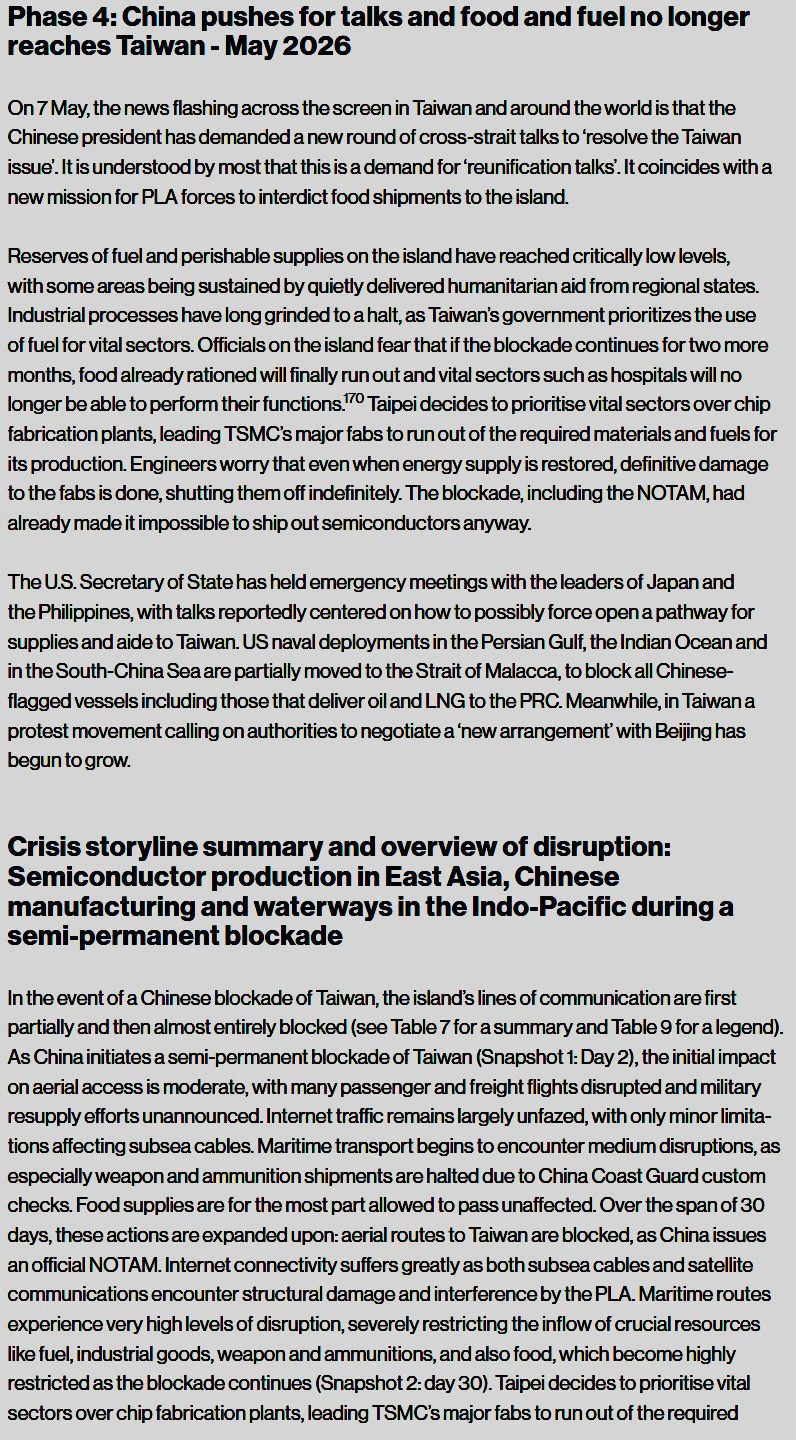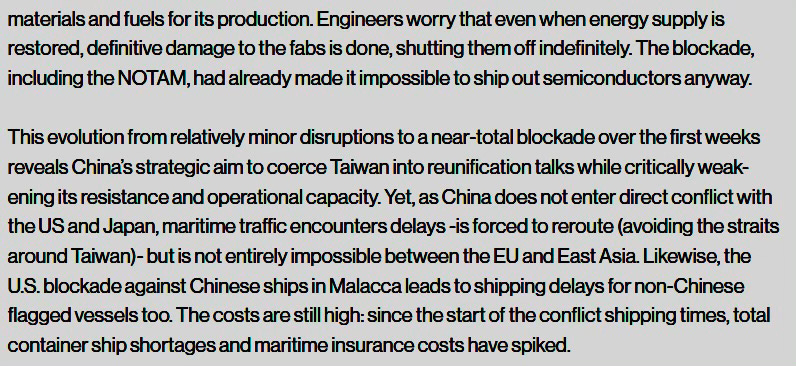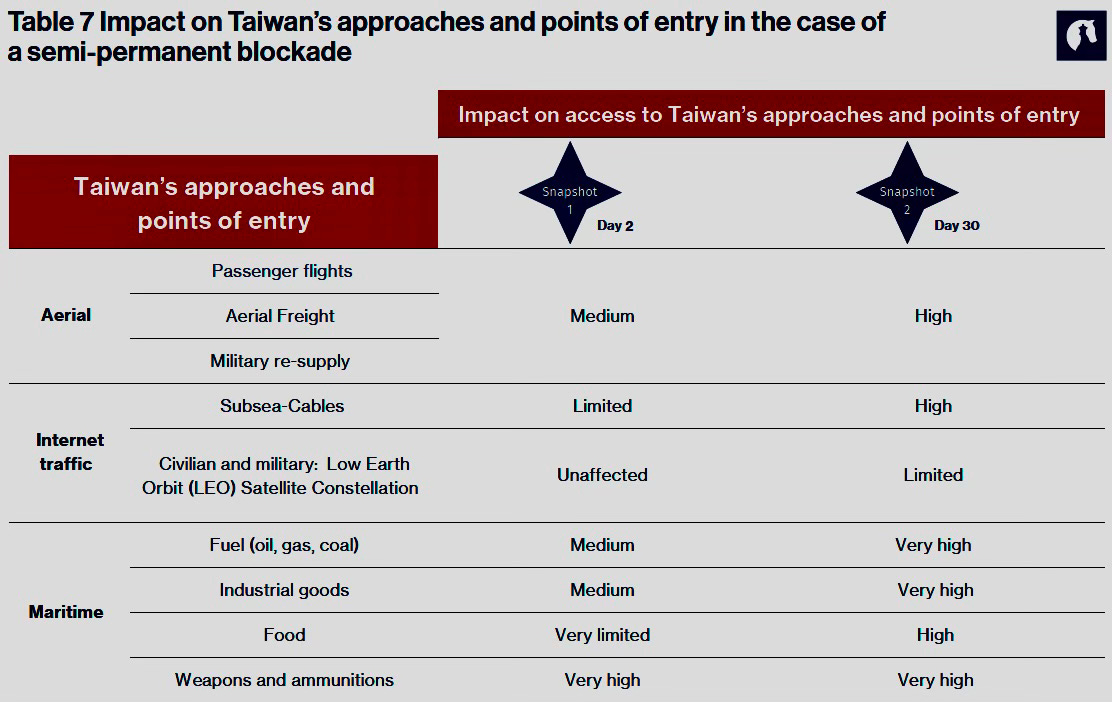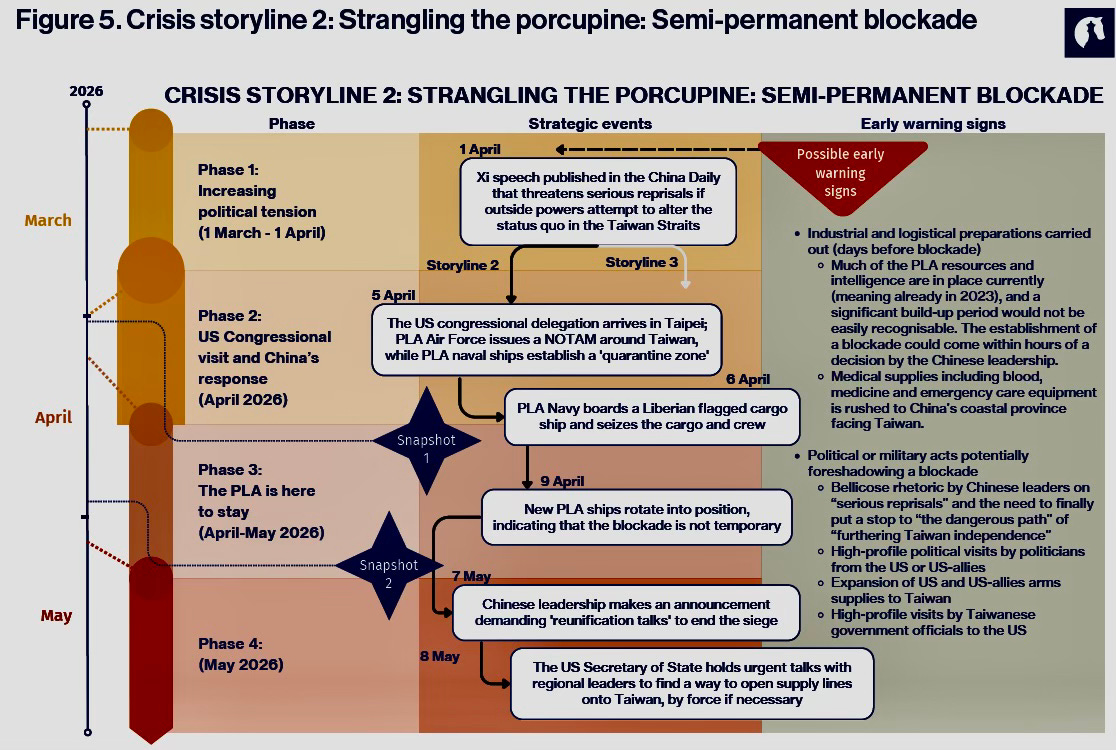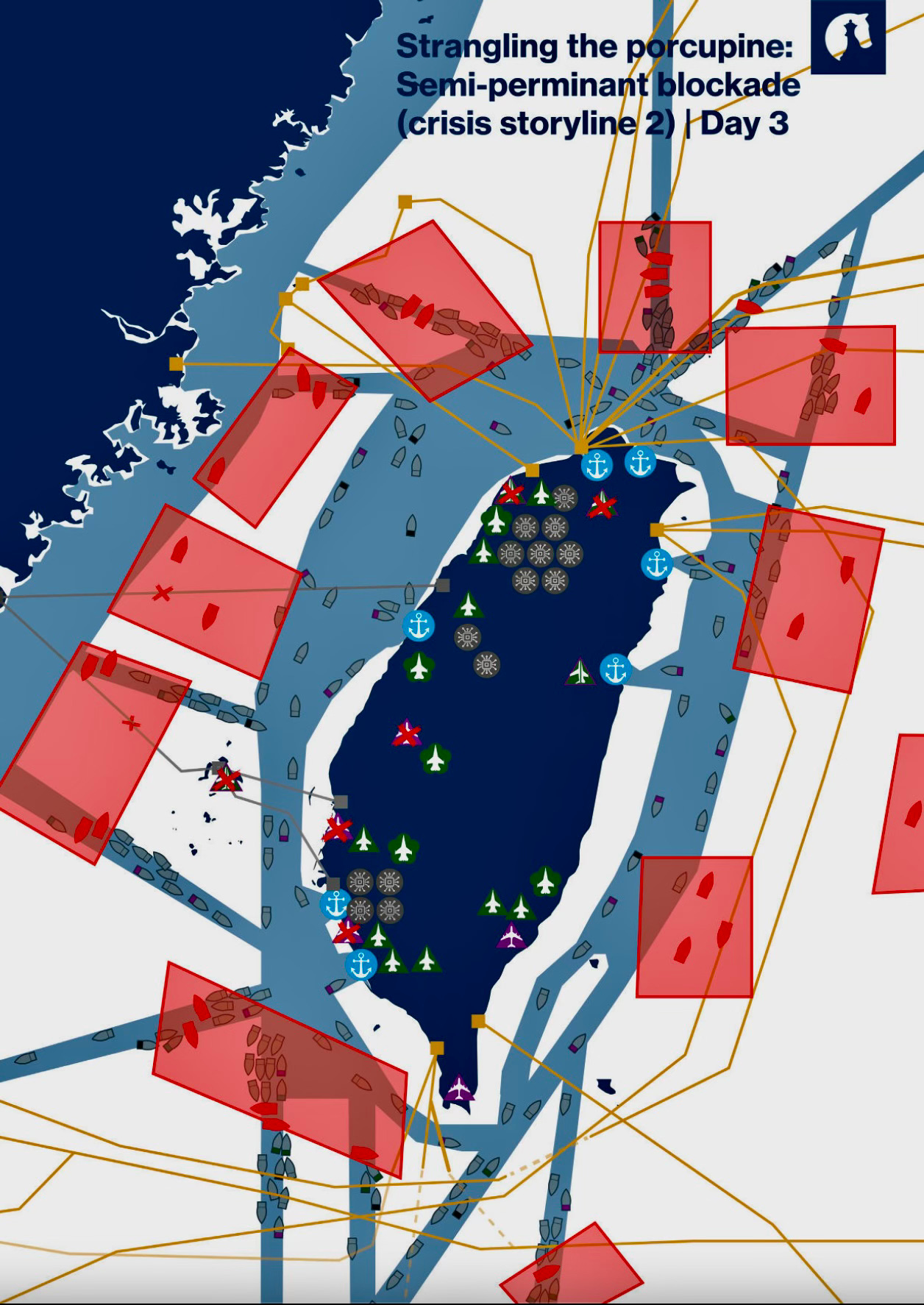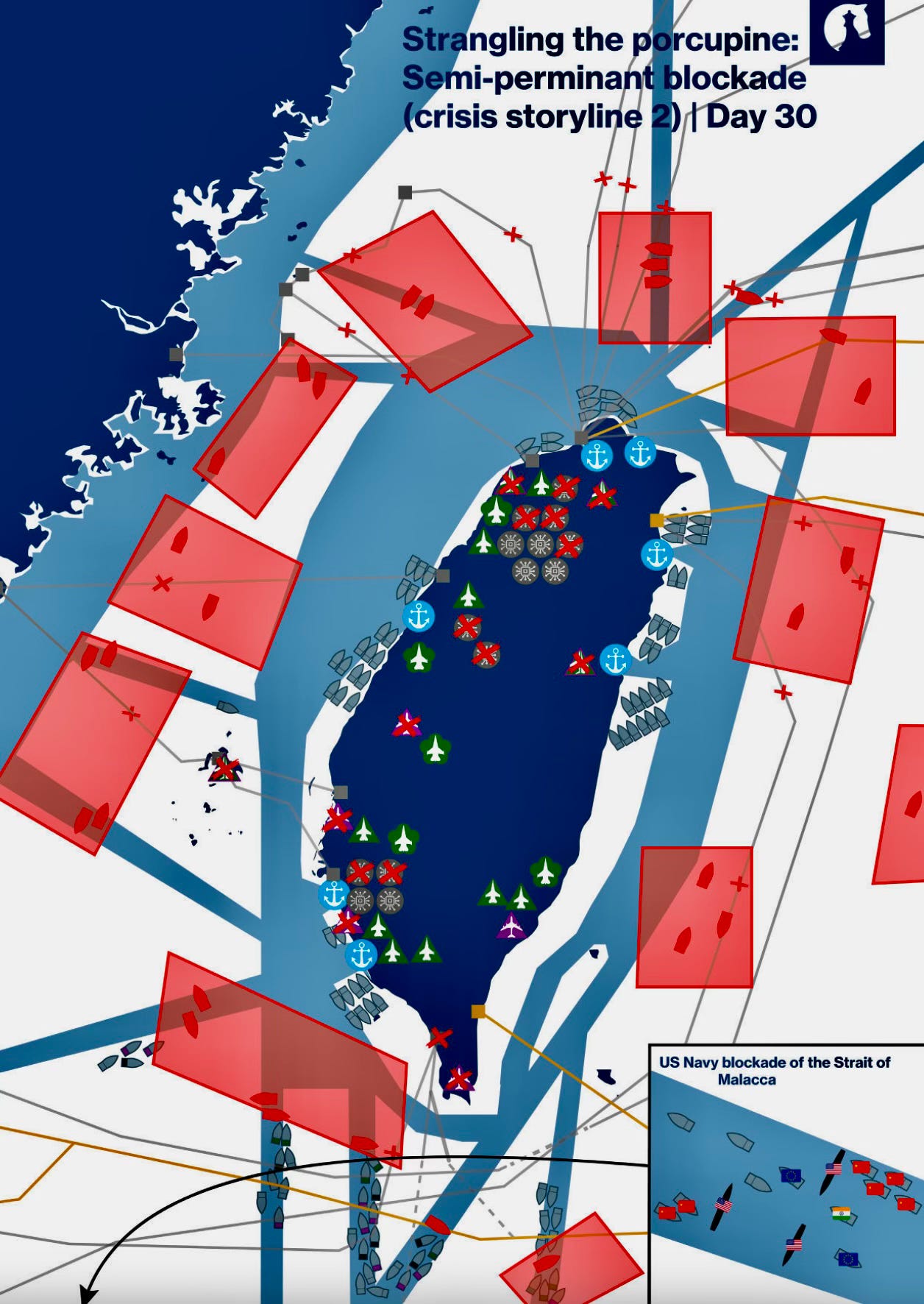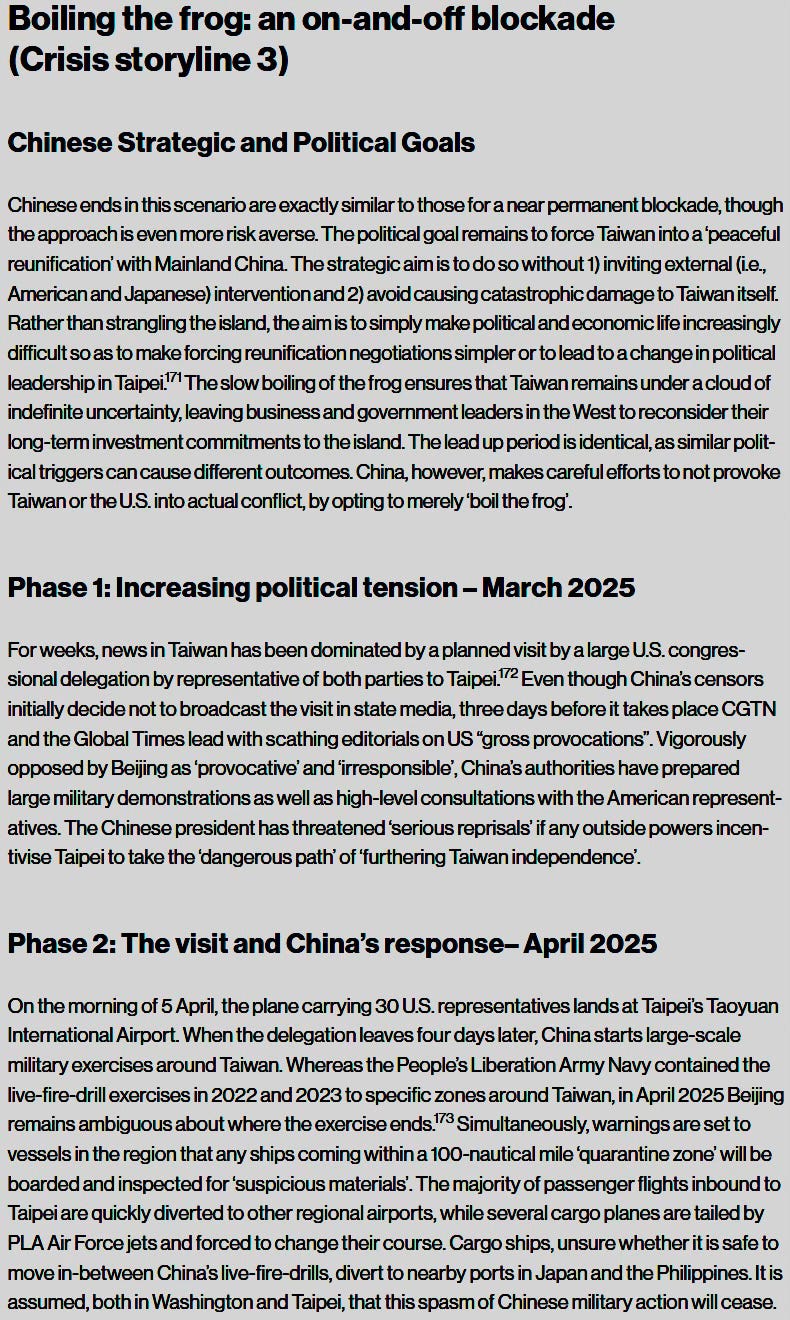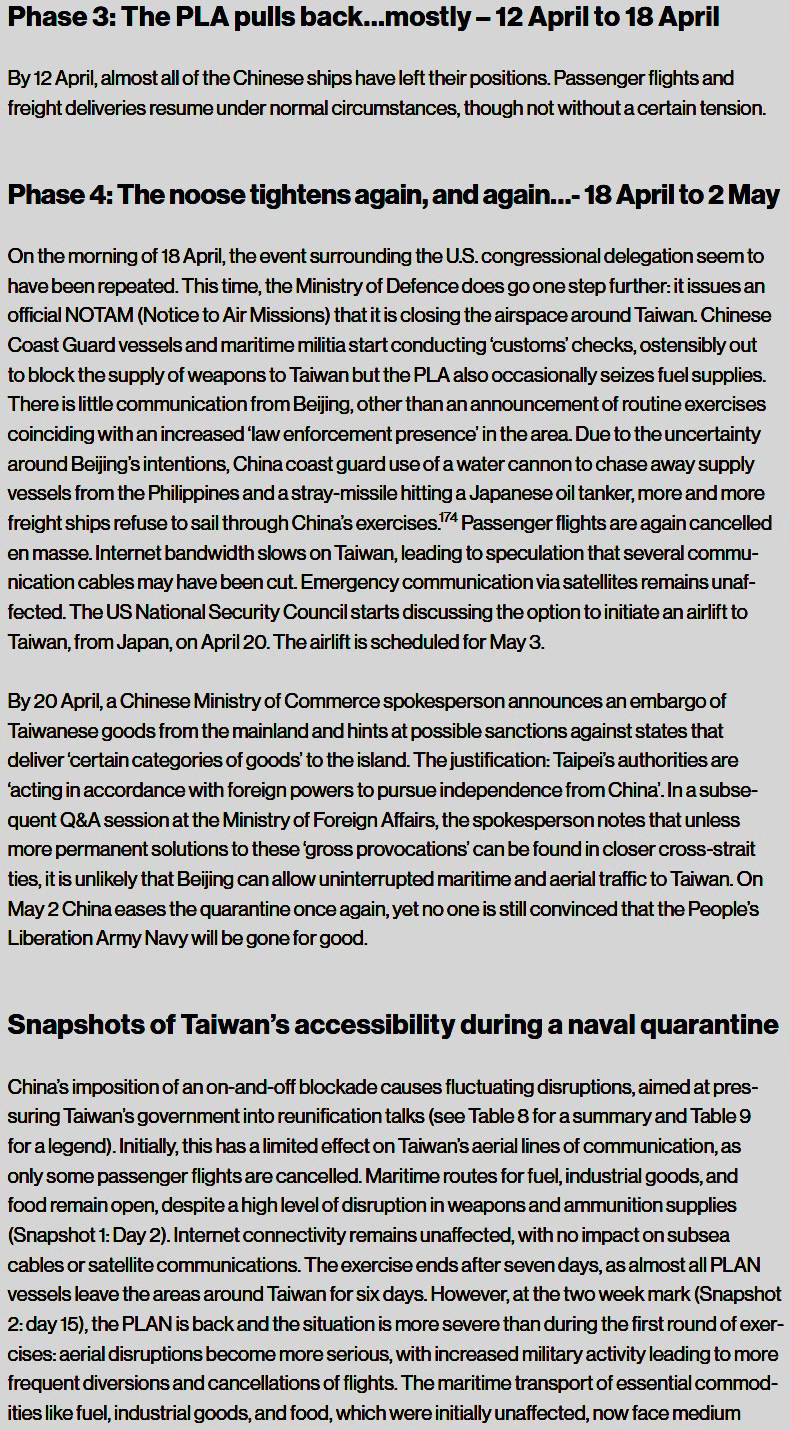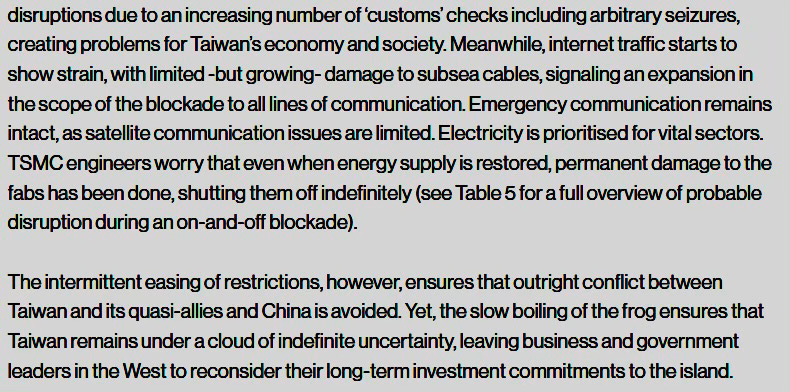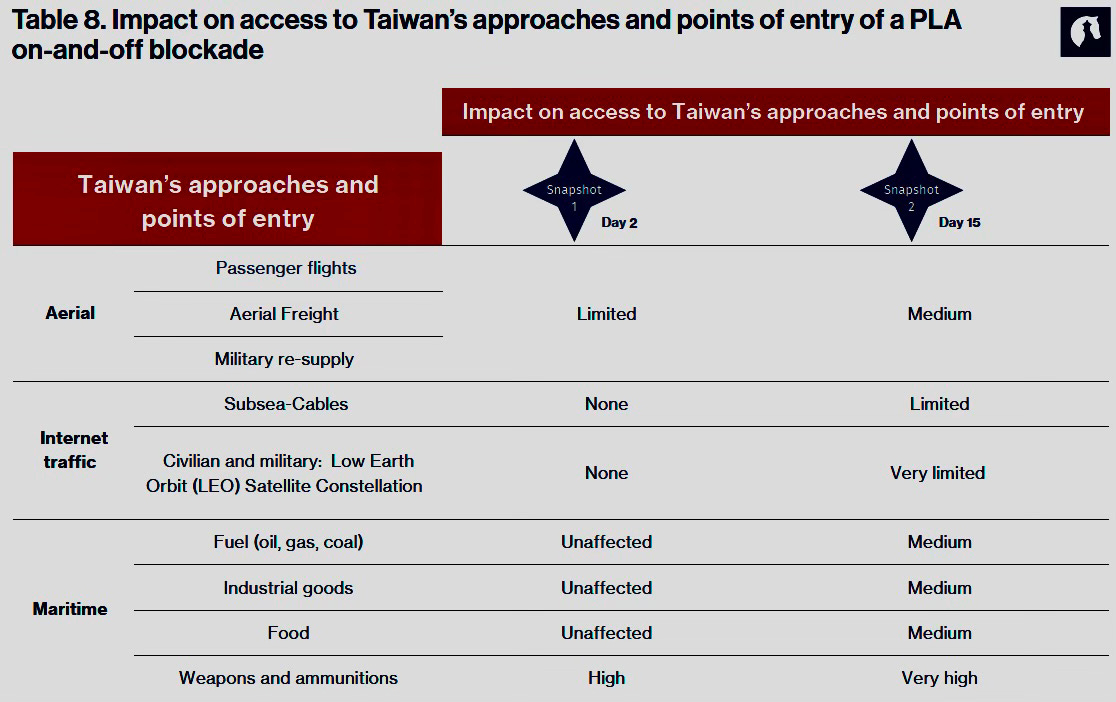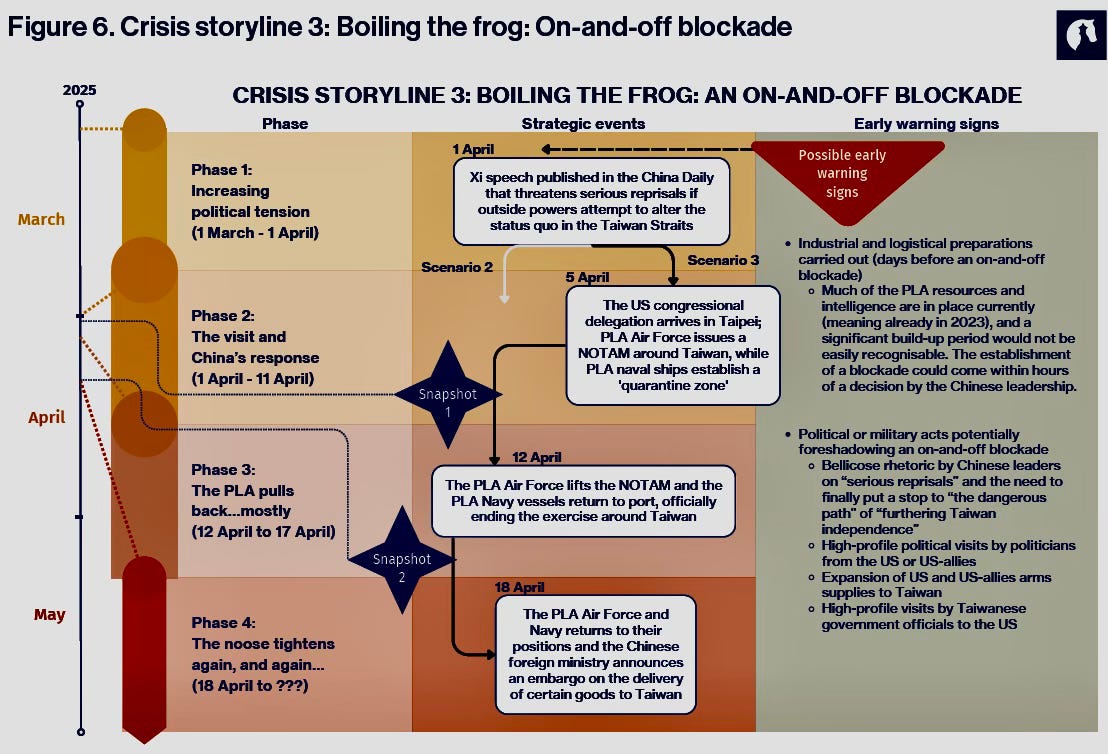UPDATED: Boiling the Frog vs. Strangling the Porcupine vs. Invasion
Economic/Military Scenarios in Synch
Follow on Twitter
Enjoy China In Arms on the big screen!
Subscribe: $5 Month/$50 Annual (unable to secure a subscription contact the bank for permission for Stripe deposits).
3 April 2024 (Wednesday)
Boiling the Frog vs. Strangling the Porcupine vs. Invasion
Economic/Military Scenarios in Synch
By Wendell Minnick (Whiskey Mike) 顏文德
TAIPEI - It took a European think tank to figure out the cost of a Sino-US war over Taiwan in both economic and military terms.
The paper seems a meld between the impact on world markets for accessing high-technology and at the same time providing realistic military scenarios.
Sort of an Economics Professor reincarnated as Genghis Khan.
The research did not come out of an American think tank, most likely because research papers are paid for by donors. Washington “research papers” are often saturated with bias that support a U.S. government policy and not realism.
So it was an elation to read the paper issued by The Hague Centre for Strategic Studies, The Cost of Conflict: Economic Implications of a Taiwan Military Crisis for the Netherlands and the EU, by Joris Teer, Davis Ellison and Abe de Ruijter.
Download:
The one objection I have in the paper is the assumption that Japanese combat aircraft will participate in the conflict.
For the most part, even today in Taipei, the Japanese defense attache office is bare bones and run by a retired military officer. Compared to the hundreds of U.S. military personnel on the island of Taiwan now, this demonstrates Japan’s reluctance to get involved in regional security issues despite the existential threat a Chinese takeover would mean for Japan.
A former senior U.S. State Department officer who served in Japan and Taiwan remarked:
My impression -- granted, as one long out of government -- is that the Pentagon and assorted pro-Taiwan think tanks and "scholars" hear about such readiness from Japanese generals and admirals. Some of them, anyway. Especially the ones who happen to speak English and deal professionally with Americans. And there were people around the late PM Abe, for that matter Abe himself, who managed to leave such an impression with "close American friends".
However ... Japanese civilians I knew (particularly Ministry of Foreign Affairs, National Police Agency, journalists) "back in the day" and with whom I remain in touch are virtually unanimous in noting that any such decision is a political decision, not a military decision, and the political realities are such in Japan that it won't happen. Japanese "permission" for the U.S. to use bases in Japan to carry out the defense of Taiwan? Yes, of course, that is a given. Japanese logistical support, within reason, from the Japanese homeland and waters immediately around Japan? Yes, very likely. But a combat role for the Self Defense Forces? No way.
Again, that's an impression, and not gospel based on any kind of recent government knowledge.
The Hague paper is divided by three scenarios:
Landing a Knock-Out Punch
Strangling the Porcupine
Boiling the Frog
CLICK TO ENLARGE:

